The function and test array:
In [22]: def getSum(n):
...: n=n**2
...: sum = 0
...: while (n != 0):
...:
...: sum = sum + int(n % 10)
...: n = int(n/10)
...: if sum <20:
...: return True
...: return False
...:
In [23]: mylist=np.array([120,3,10,33,5,54,2,23,599,801])
Your filter solution:
In [51]: list(filter(getSum, mylist))
Out[51]: [120, 3, 10, 33, 5, 54, 2, 23, 801]
and a sample timing:
In [52]: timeit list(filter(getSum, mylist))
32.8 µs ± 185 ns per loop (mean ± std. dev. of 7 runs, 10000 loops each)
Since this returns a list, and iterates, it should be faster if mylist was a list, rather than an array:
In [53]: %%timeit alist=mylist.tolist()
...: list(filter(getSum, alist))
18.4 µs ± 378 ns per loop (mean ± std. dev. of 7 runs, 10000 loops each)
alternatives
You proposed use of np.vectorize:
In [56]: f = np.vectorize(getSum); mylist[f(mylist)]
Out[56]: array([120, 3, 10, 33, 5, 54, 2, 23, 801])
In [57]: timeit f = np.vectorize(getSum); mylist[f(mylist)]
63.4 µs ± 151 ns per loop (mean ± std. dev. of 7 runs, 10000 loops each)
In [58]: timeit mylist[f(mylist)]
57.6 µs ± 920 ns per loop (mean ± std. dev. of 7 runs, 10000 loops each)
Oops! that's quite a bit slower, even if we remove the f creation from the timing loop. vectorize is pretty, but does not promise speed.
I've found that frompyfunc is faster than np.vectorize (though they are related):
In [59]: g = np.frompyfunc(getSum, 1,1)
In [60]: g(mylist)
Out[60]:
array([True, True, True, True, True, True, True, True, False, True],
dtype=object)
the result is object dtype, which in this case has to be converted to bool:
In [63]: timeit mylist[g(mylist).astype(bool)]
25.5 µs ± 233 ns per loop (mean ± std. dev. of 7 runs, 10000 loops each)
That's better than your filter - but only if applied to the array, not the list.
@Saandeep proposed a list comprehension:
In [65]: timeit mylist[[getSum(i) for i in mylist]]
40.7 µs ± 1.21 µs per loop (mean ± std. dev. of 7 runs, 10000 loops each)
That's a bit slower than your filter.
A faster way to use list comprehension is:
[i for i in mylist if getSum(i)]
This times the same as your filter - for both the array and list versions (I lost the session where I was timing things).
pure numpy
@lante worked out a pure numpy solution, clever but a bit obscure. I haven't worked out the logic:
def lante(mylist):
max_digits = np.ceil(np.max(np.log10(mylist))) # max number of digits in mylist
digits = mylist//(10**np.arange(max_digits)[:, None])%10 # matrix of digits
digitsum = np.sum(digits, axis=0) # array of sums
mask = digitsum > 20
return mask
And unfortunately not a speed demon:
In [69]: timeit mylist[~lante(mylist)]
58.9 µs ± 757 ns per loop (mean ± std. dev. of 7 runs, 10000 loops each)
I don't have numba installed, so can't time @jezrael's solution.
So your original filter is a good solution, especially if you start with a list rather than an array. Especially when considering conversion times, a good Python list solution is often better than numpy one.
Timings may be different with a large example, but I don't expect any upsets.
